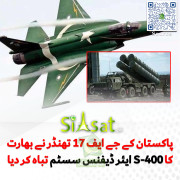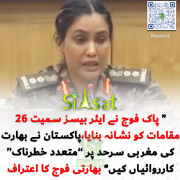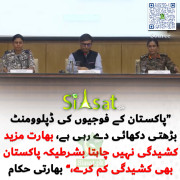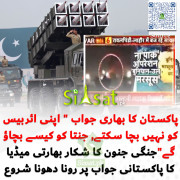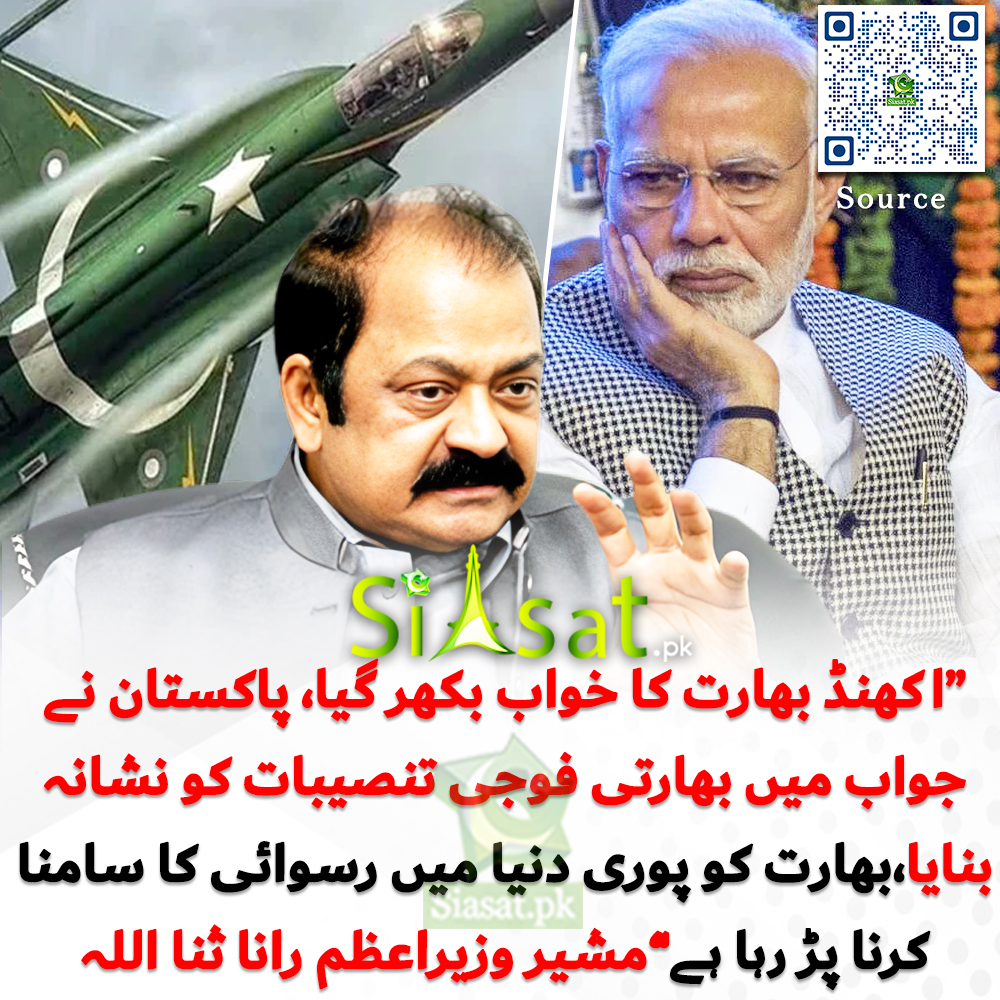jigrot
Minister (2k+ posts)
Let’s be clear: Pakistan did not back out. It endured, responded, and in many ways, came out victorious, not just militarily, but diplomatically and strategically. This conflict was never just a border issue, it was a calculated move to isolate and weaken Pakistan, under the assumption that India, backed by its global partners, could deliver a decisive blow. But the plan failed. What was meant to be a show of dominance by India turned into a revelation of Pakistan’s strength, unity, and growing strategic depth.
From the beginning, Pakistan stood alone. The Western powers remained silent, offering India what seemed like a free hand to “fix” Pakistan. But that silence was based on a flawed assumption, that Pakistan would be overwhelmed and fold quickly. Instead, Pakistan’s military and political leadership demonstrated a calm yet forceful response, balancing precision with deterrence, and showing the world that it would not be a passive player in regional games.
As the situation began to shift, the very powers who supported or silently endorsed India’s actions began to panic. The war wasn’t going as planned. Pakistan held its lines, inflicted setbacks, and rallied internal unity. That's when the calls for mediation and de-escalation emerged, not because of a change of heart, but because the cost of miscalculation was becoming real. The threat of a broader conflict, possibly drawing in China and reshaping the region’s balance of power, was too high.
This is where the significance lies:
This war was a test of strength, of resolve, of strategic patience. It was designed to crush Pakistan, but it ended up exposing the limits of Indian power and the waning influence of those who backed it. The tide is turning. The age of Western-aligned unilateral actions is fading. India and its allies miscalculated, and in doing so, they lost more than a battle, they lost their narrative.
Pakistan, through unity, resilience, and smart strategy, did not just survive, it won on its own terms.
From the beginning, Pakistan stood alone. The Western powers remained silent, offering India what seemed like a free hand to “fix” Pakistan. But that silence was based on a flawed assumption, that Pakistan would be overwhelmed and fold quickly. Instead, Pakistan’s military and political leadership demonstrated a calm yet forceful response, balancing precision with deterrence, and showing the world that it would not be a passive player in regional games.
As the situation began to shift, the very powers who supported or silently endorsed India’s actions began to panic. The war wasn’t going as planned. Pakistan held its lines, inflicted setbacks, and rallied internal unity. That's when the calls for mediation and de-escalation emerged, not because of a change of heart, but because the cost of miscalculation was becoming real. The threat of a broader conflict, possibly drawing in China and reshaping the region’s balance of power, was too high.
This is where the significance lies:
- Strategic Exposure of India: India’s ambitions of playing the regional hegemon, the so-called “counterweight to China,” were dealt a blow. Not only did it fail to achieve its military objectives, but it also lost political capital in the region. Its perceived role as a stabilizer is now questioned, as its aggressive misadventure ended in a stalemate if not outright failure.
- Shift in Regional Power: The conflict has underlined the emergence of a new multipolar order. China's quiet but looming presence added pressure, and it’s becoming increasingly clear that the West can no longer dictate terms in South Asia. The narrative that power is shifting eastward is not just a theory it played out in this very crisis.
- Pakistan's Resilience: This conflict proved that Pakistan is not a fragile state waiting to collapse under pressure. Instead, it showed discipline, national unity, and a capacity for calibrated military action. In many ways, Pakistan proved that it is not only capable of defending its sovereignty but of shaping the outcomes of any conflict in the region.
- Failure of India’s Gamble: India, which hoped to set an example by overpowering Pakistan, has now ended up looking diplomatically cornered and militarily checked. The perception of India as a rising, reliable power in the region has been weakened.
This war was a test of strength, of resolve, of strategic patience. It was designed to crush Pakistan, but it ended up exposing the limits of Indian power and the waning influence of those who backed it. The tide is turning. The age of Western-aligned unilateral actions is fading. India and its allies miscalculated, and in doing so, they lost more than a battle, they lost their narrative.
Pakistan, through unity, resilience, and smart strategy, did not just survive, it won on its own terms.




